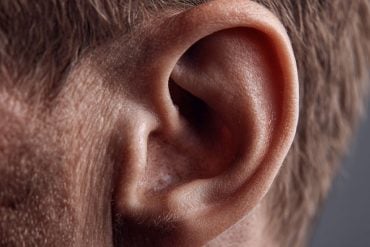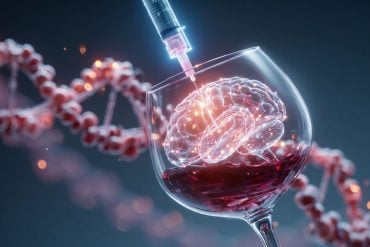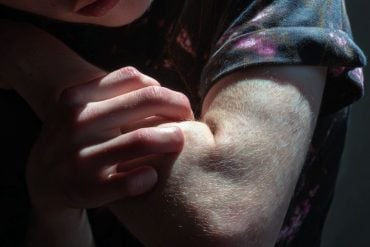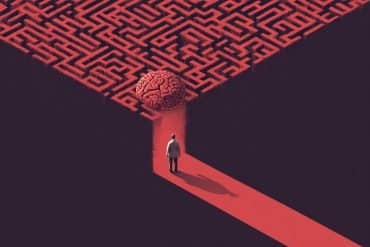Summary: New research reveals that people who have near-death experiences often undergo profound shifts in perspective, purpose, and priorities, but many struggle to integrate these changes into daily life. In a study of 167 individuals, over half sought counseling or support afterward, and those who received validation and understanding found the help most beneficial.
Acceptance and nonjudgment from peers, family, or specialized groups were key to recovery, while traditional therapy was often rated less helpful. The findings underscore the need for clinicians to receive training in addressing the unique psychological and spiritual impacts of near-death experiences.
Key Facts:
- Support Seeking: 64% of near-death experiencers sought professional or social support after their experience.
- Validation Matters: Positive, accepting reactions made individuals far more likely to view support as helpful.
- Training Gap: Mental health professionals often lacked the understanding needed to address NDE-related challenges effectively.
Source: University of Virginia
Near-death experiences can have lasting, life-changing effects, and new University of Virginia School of Medicine research sheds light on the types of counseling and support that can best help people cope.
The research, from UVA’s Division of Perceptual Studies, is believed to be the first to explore the most common and effective ways to assist people grappling with potentially profound changes to their world view.

For most, near-death experiences, or NDEs, have a positive effect; the brush with death can give experiencers renewed purpose in life, a desire to serve others and an appreciation for being part of a greater whole.
But even then some people may struggle to make sense of the experience, especially if their NDE conflicts with their religious or existential beliefs, personal values or scientific views.
Additionally, individuals who have had an NDE may struggle with incorporating changes in priorities, relationships and values into their lives.
In dealing with the aftermath of a near-death experience, people can benefit from the right type of support, says researcher Marieta Pehlivanova, PhD, of UVA Health’s Department of Psychiatry and Neurobehavioral Sciences.
“We know a lot about these experiences from decades of research, including their typical manifestations, incidence, medical circumstances, their impact on individuals and even the physiological conditions of patients who have them,” she said.
“However, the research on how to support these patients and their specific needs is still limited. We hope to begin addressing this gap and to inspire other researchers, especially clinicians, to devote time and care in pursuing these questions.”
Effects of Near-Death Experiences
Pehlivanova and her colleagues looked at the types of professional help, therapy and other forms of support sought by 167 people after their near-death experiences and the factors that predict who will need support after the experience. The researchers also asked the experiencers how helpful they found the different forms of support.
More than half of the experiencers – 64% – had reached out for help, and 78% of those found the support helpful. The greater the intensity of the NDE, the more likely the experiencers were to seek help, the researchers found. People with a history of psychological difficulties were also significantly more likely to seek support.
One key to successful support was acceptance and validation. Many people hesitate to seek help for fear they will be labeled “crazy,” the researchers note. Strikingly, people who received a positive or accepting first reaction when they disclosed their experiences were much more likely to describe the overall support they received as beneficial.
People were also likely to describe the support as helpful if they were older, if they described their childhoods as happy – hinting at greater resilience – and if they received support from groups or online sources that are “friendly” to and knowledgeable about the phenomenon of near-death experiences, the researchers report in a new scientific paper outlining their findings.
Further, people who described their mental health as good were less likely to report seeking support after their NDE and more likely to report that support was helpful, if they sought it.
This may because they have greater mental-health resiliency allowing them to process the NDE without the need for external support, or their current mental health may have been the result or receiving validating support, the researchers say.
Notably, support received from mental-health professionals was associated with lower perceived helpfulness. This may reflect a need for more counselors, therapists and health professional specifically trained in helping people cope with near-death experiences, the researchers conclude.
“We are hoping that this work brings light to the support needs of individuals who have had a near-death experience and are trying to make sense of it and its impact,” Pehlivanova said.
“In a new era of holistic patient care and extensive research on these experiences, including in medical journals, it is important to highlight the need for education of healthcare providers to address the gap of care for these patients.”
About the Findings
Pehlivanova and her colleagues have published their findings in the scientific journal Psychology of Consciousness: Theory, Research and Practice. The article is open access, meaning it is free to read.
The research team consisted of Pehlivanova, Katherine C. McNally, Sabina Funk and Bruce Greyson.
Key Questions Answered:
A: Many struggle to reconcile profound new perspectives with prior beliefs, relationships, and values, leading to confusion or isolation.
A: Validation and open-minded responses—especially from peers or NDE-focused groups—were the strongest predictors of positive outcomes.
A: Many clinicians lack training or familiarity with near-death phenomena, leading to misunderstandings or invalidation of patients’ experiences.
About this near-death experience and psychology research news
Author: Josh Barney
Source: University of Virginia
Contact: Josh Barney – University of Virginia
Image: The image is credited to Neuroscience News
Original Research: Open access.
“Support Needs After a Near-Death Experience: A Quantitative Study With Experiencers” by Marieta Pehlivanova et al. Psychology of Consciousness Theory Research and Practice
Abstract
Support Needs After a Near-Death Experience: A Quantitative Study With Experiencers
Near-death experiences (NDEs) can occur when an individual is in a medical crisis or near death and they appear to involve an awareness of a reality beyond one’s physical conditions.
NDEs have common (though not universal) features, such as out-of-body perceptions or a sense of undergoing a life review. Profound aftereffects frequently follow an NDE, including reduced fear of death or increased compassion for others.
However, these experiences can also bring distress, as experiencers may struggle to communicate about their NDE, integrate it when it challenges their prior worldviews or reconcile their changed values with those of loved ones.
Despite these well-documented challenges, specialized professional help for experiencers remains limited, prompting individuals to seek support from various sources.
Here, we report findings from an exploratory study with 167 NDEs, examining the types of professional help, therapy, and other support avenues they have pursued to process their experience, as well as the perceived helpfulness of support and barriers to seeking support.
Sixty-four percent of participants reported seeking help in processing the NDE and 78% found the support received to be helpful.
Greater NDE intensity and a history of psychological difficulties significantly increase the likelihood that experiencers will seek support. Experiencing validation—such as a positive first reaction when disclosing the NDE or support from NDE-friendly organizations—significantly increases the perceived helpfulness of the support.
We offer an overview of challenges after an NDE and discuss how these findings can be used going forward to improve support after this transformational experience.






